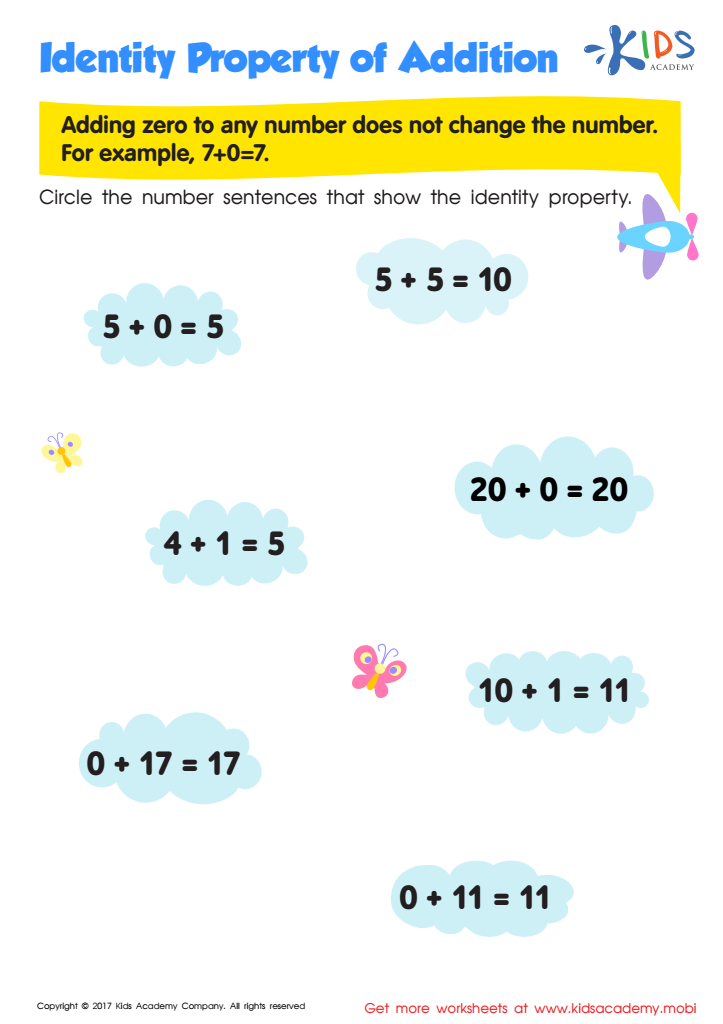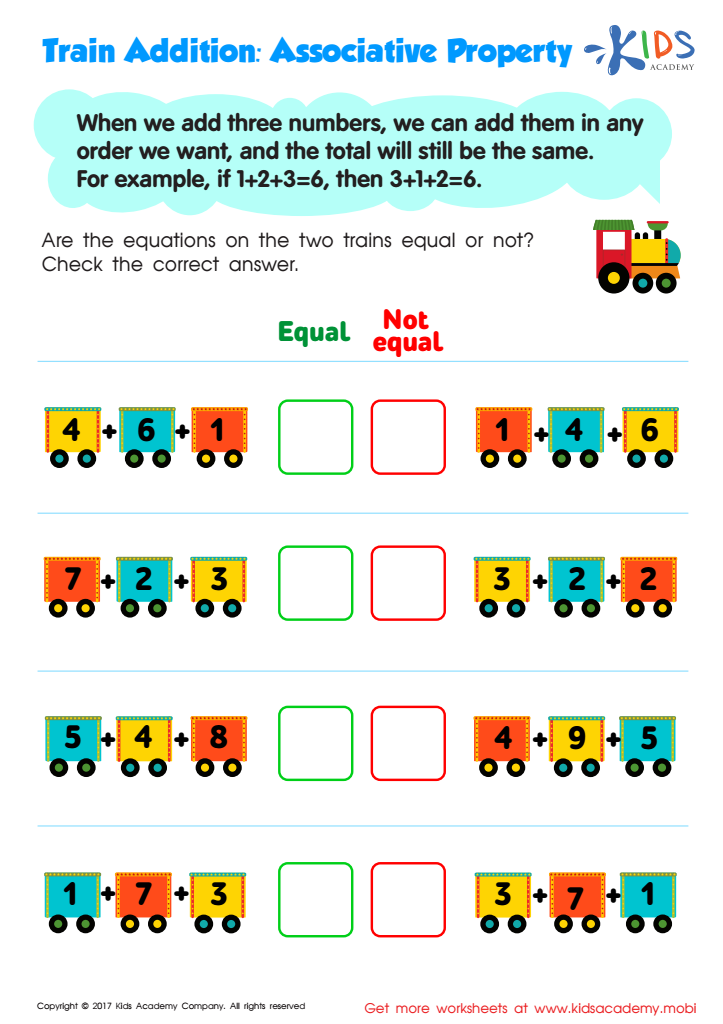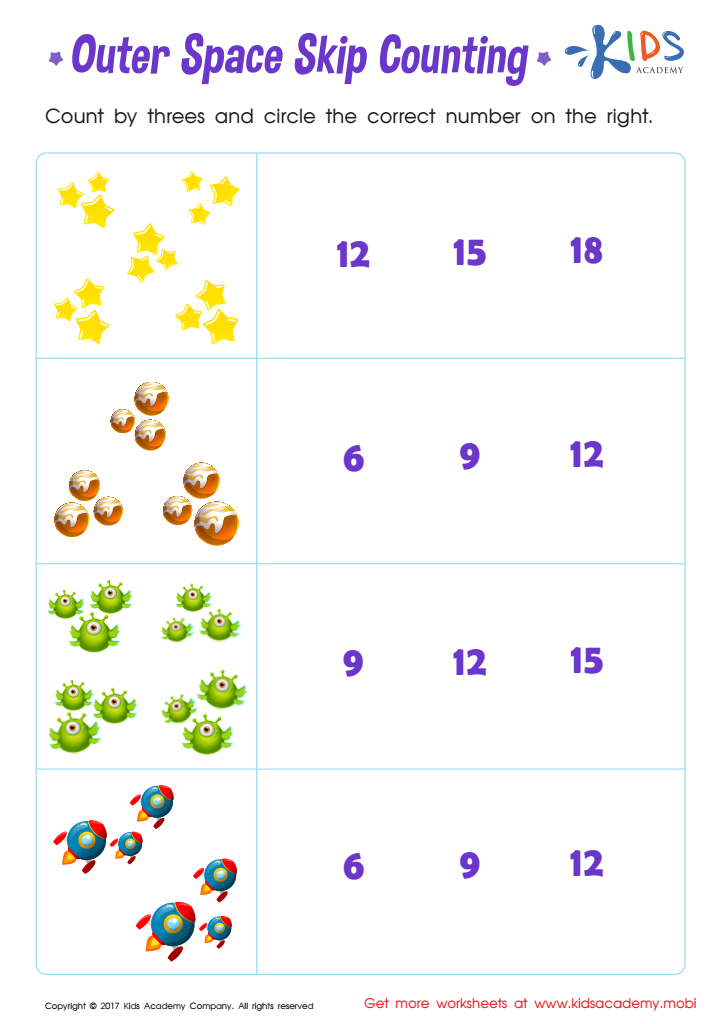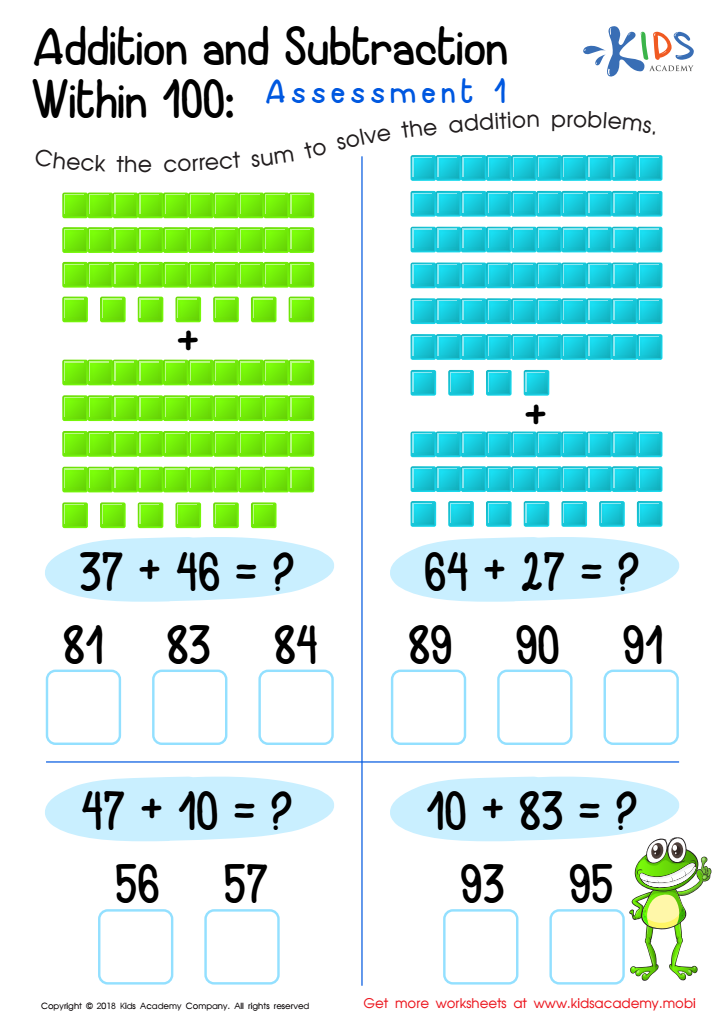Enhancing math skills Numbers Worksheets for Ages 3-6
4 filtered results
-
From - To
Boost your child's math abilities with our engaging Numbers Worksheets designed for ages 3-6. These printable resources focus on enhancing foundational math skills through a variety of fun activities. From number recognition to simple addition and subtraction, our worksheets encourage active learning and foster a love for mathematics. With vibrant illustrations and interactive exercises, children will develop confidence in their math skills while having fun. Ideal for homeschoolers or as supplementary materials, our worksheets cater to diverse learning styles, making math enjoyable for every young learner. Start your child's mathematical journey today and watch their skills flourish!


Identity Property of Addition Worksheet


Train Addition: Associative Property Worksheet


Skip Counting by 3s: Outer Space Skip Counting Printable


Addition and Subtraction Within 1: Assessment 1 Worksheet
Enhancing math skills in children ages 3-6 is crucial for their overall development and future academic success. Early mathematical understanding lays a foundation for critical thinking and problem-solving abilities that are essential in everyday life and future learning. During this formative stage, children are naturally curious and can easily grasp concepts such as numbers, patterns, and basic operations through play and exploration.
Parents and teachers play a vital role in nurturing these skills. Engaging with children in activities that promote counting, sorting, and simple addition or subtraction not only makes learning fun but also fosters a love for mathematics. Understanding numbers helps children develop spatial awareness and enhances their analytical abilities, which are important in various subjects as they progress in school.
Furthermore, math skills are integral to everyday tasks, such as measuring ingredients in cooking, managing money, or even telling time. Early proficiency can lead to greater confidence in their abilities and reduce anxiety around math-related subjects in later years. By prioritizing math skill enhancement in early childhood, parents and teachers contribute significantly to children’s holistic growth, preparing them for academic challenges and real-world applications. Fostering these skills early sets the stage for a lifetime of lifelong learners and critical thinkers.
 Assign to My Students
Assign to My Students




















